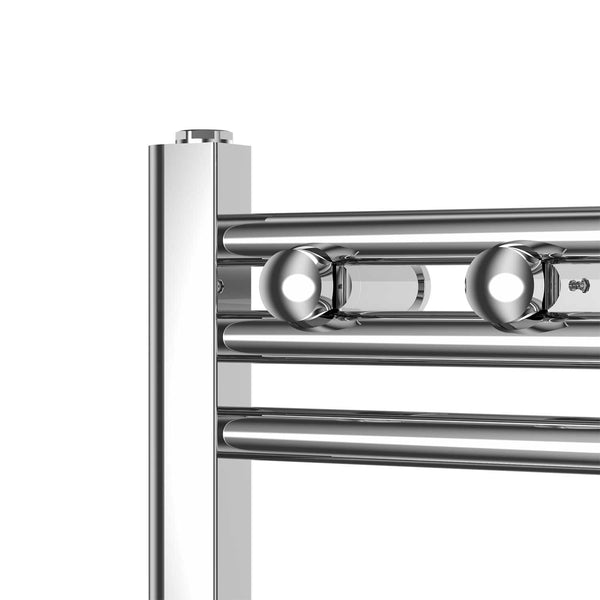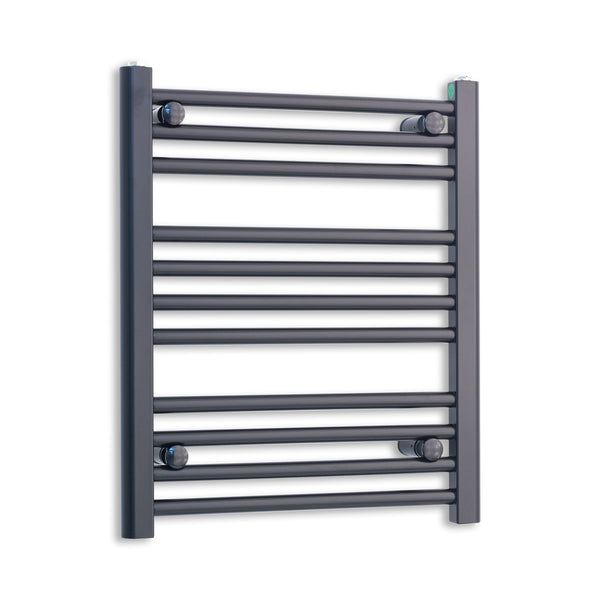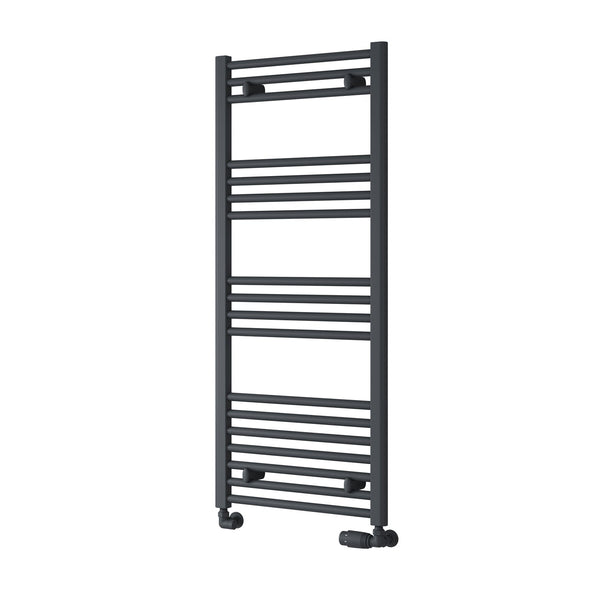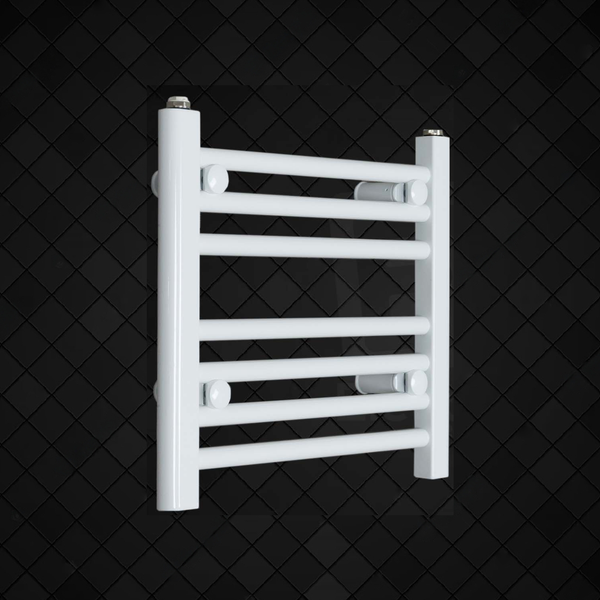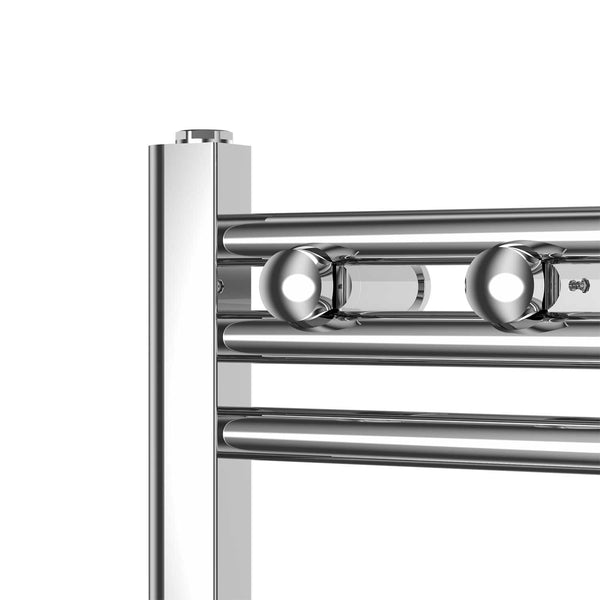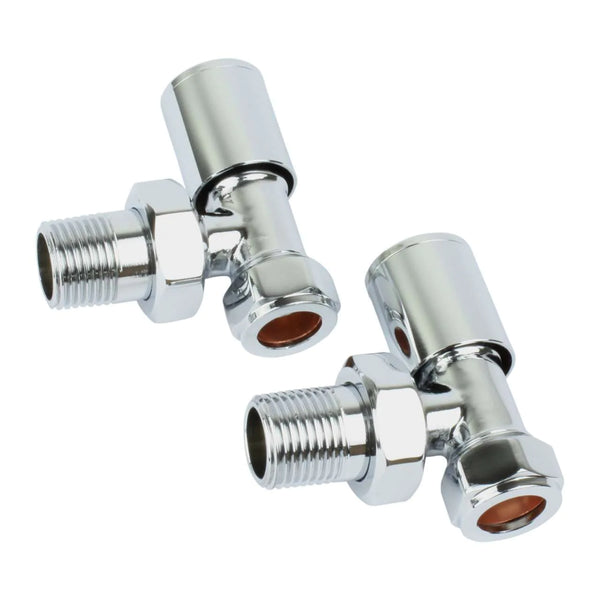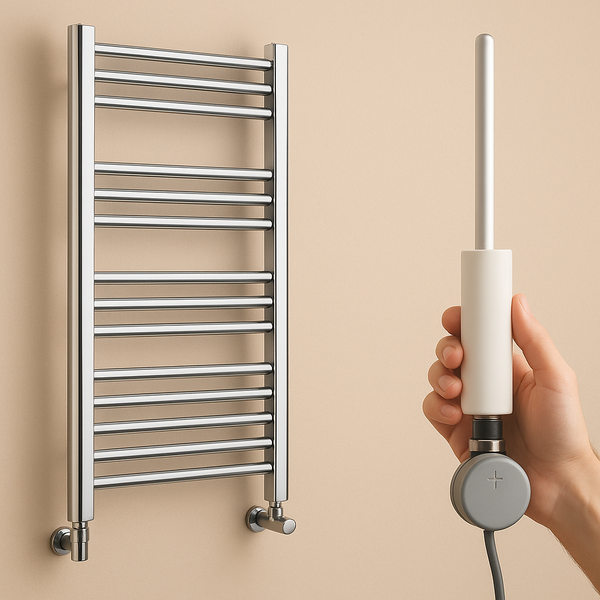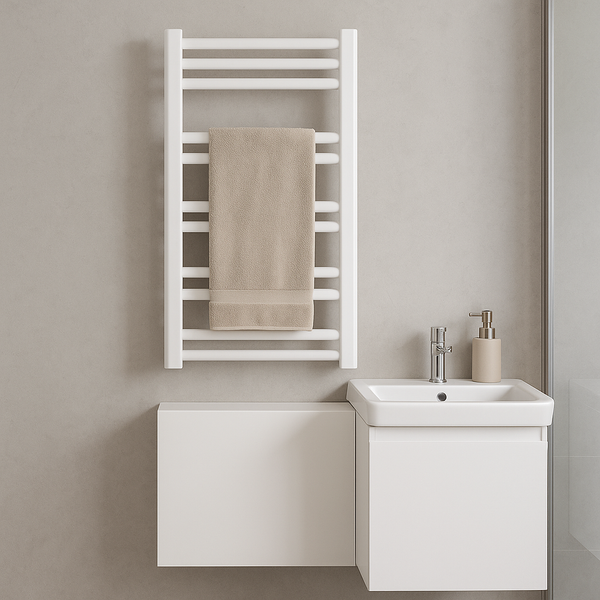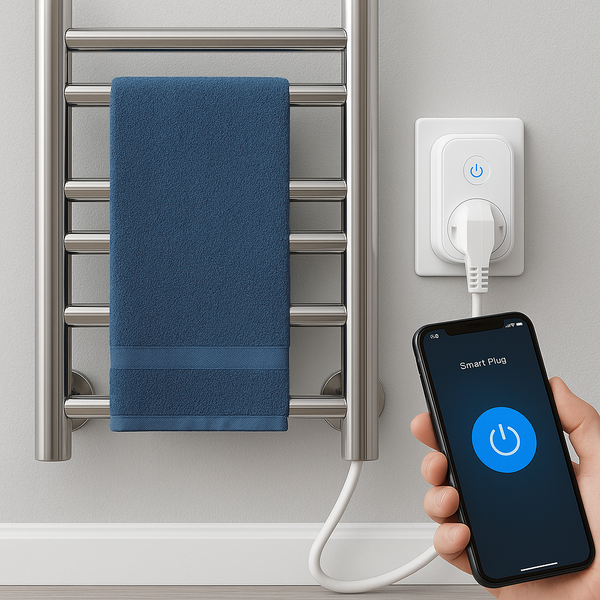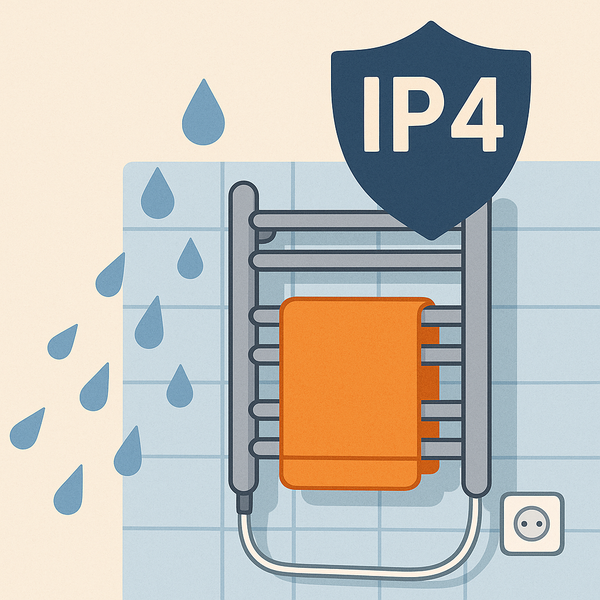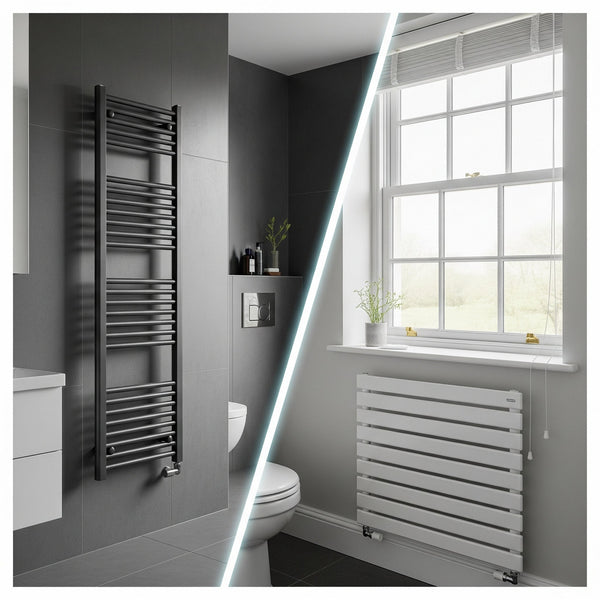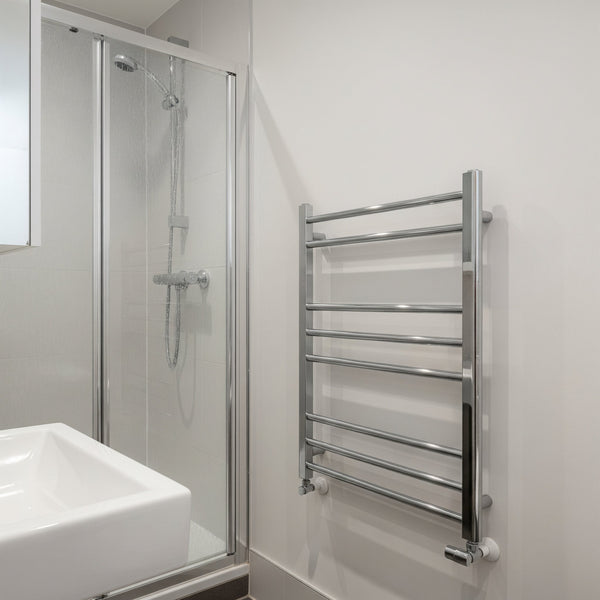Comparing Electric Radiators and Central Heating Systems
Choosing the right heating system is one of the most significant decisions a homeowner can make. It impacts everything from installation disruption and upfront costs to your monthly energy bills and overall comfort. For decades, traditional gas central heating has been the undisputed king in the UK. However, with rising energy costs, a focus on efficiency, and the growth of smart technology, modern electric radiators are now a powerful and flexible contender.
But how do they truly stack up against each other? Is one definitively better than the other? The answer isn't a simple yes or no; it depends entirely on your property, your lifestyle, and your priorities. This definitive guide from Company Blue will break down the comparison across the five key areas that matter most, helping you understand the pros and cons of each system to make an informed choice for your home.

1. Installation Cost & Complexity
This is the first major difference between the two systems.
Central Heating: Installing a 'wet' central heating system from scratch is a major undertaking. It requires a qualified Gas Safe engineer to install a boiler, a complex network of copper pipework running under floors and through walls to every room, and the radiators themselves. It's a disruptive, labour-intensive, and therefore expensive process, with costs often running into many thousands of pounds.
Electric Radiators: Installation is vastly simpler and cheaper. Each radiator is a standalone unit. It just needs to be mounted on the wall and wired into the mains electricity via a fused spur. This is a quick and straightforward job for any qualified electrician, with minimal disruption and no need for pipes, flooring to be lifted, or a boiler.
The Verdict: For ease, speed, and low upfront cost, electric heating is the clear winner.
2. Running Costs & Efficiency
This is the most nuanced and important comparison for most people.
Central Heating: Gas is currently cheaper per kilowatt-hour (kWh) than electricity. A modern A-rated condensing boiler is also highly efficient (over 90%). Therefore, for heating an entire, well-insulated house consistently, a gas central heating system generally has lower overall running costs.
Electric Radiators: Electric heating is 100% efficient at the point of use, meaning every single watt of electricity drawn from the wall is converted directly into heat. There are no boiler or pipework losses. However, the unit cost of electricity is higher than gas. Where electric truly excels is through zonal heating and smart controls. It is far more efficient to heat a single room with a 1.5kW electric radiator than it is to fire up a 30kW boiler to do the same job. Lot 20 compliant smart features ensure you only use the exact energy needed, when it's needed.
The Verdict: For whole-house running costs, central heating is currently cheaper. For heating single rooms, extensions, or for homes where you only want to heat specific zones at specific times, electric heating is more efficient and cost-effective.
3. Control & Comfort
How responsive and controllable is the heat?
Central Heating: Traditionally controlled by a single, central thermostat (usually in the hallway). You can add Thermostatic Radiator Valves (TRVs) to control individual rooms, but the whole system is either 'on' or 'off'. Heat-up times can be slower as the boiler and the water in the entire system need to warm up.
Electric Radiators: Control is inherently zonal. Each radiator is its own independent heating zone with its own built-in, highly accurate thermostat and 24/7 programmer. This allows for precise temperature control in every single room. They are also very responsive, heating up quickly as soon as they are switched on.
The Verdict: For granular, room by room control and fast response times, electric heating offers superior comfort and flexibility.
4. Maintenance & Lifespan
What are the long-term ownership costs and hassles?
Central Heating: Requires an annual boiler service from a Gas Safe engineer to remain safe and efficient. The system needs to be bled periodically, and the water should contain a corrosion inhibitor to prevent sludge build-up. There are multiple points of failure: the boiler, the pump, motorised valves, and the pipework itself, which can leak.
Electric Radiators: They are virtually maintenance free. With no boiler, no pump, no pipes, and no water, there is nothing to service, bleed, or leak. There are no moving parts, leading to exceptional reliability and a very long lifespan.
The Verdict: For a hassle free, "fit and forget" solution, electric heating is the undisputed winner.
5. Environmental Impact
Which system is greener?
Central Heating: Most UK systems run on natural gas, a fossil fuel. Burning gas in your boiler releases CO2 directly into the atmosphere at the point of use.
Electric Radiators: They produce zero emissions at the point of use. Their overall environmental impact is tied to how the electricity is generated. As the UK's National Grid becomes progressively greener with more input from wind, solar, and nuclear power, electric heating is increasingly becoming the lower-carbon option. Pairing electric radiators with a green energy tariff from your supplier makes it a very environmentally friendly choice.
The Verdict: With a view to the future and the decarbonisation of the grid, electric heating is the greener choice.
FAQ: Comparing Heating Systems
Here are our answers to the most common questions when weighing up your options.
So, which system is ultimately cheaper?
It's a balance. Central heating is cheaper to run for a whole house, but costs much more to install. Electric heating is much cheaper to install, but can be more expensive if used to heat a whole house constantly. The most cost-effective solution is often a hybrid approach: central heating for the main house, and targeted electric heating for extensions, conservatories, or bathrooms.
Can I mix and match electric and central heating?
Yes, absolutely. This is a very popular and smart strategy. Many people use their main central heating system and supplement it with a standalone electric radiator or towel rail in a room that's hard to heat, like a loft conversion, or in a bathroom where they want heat independently during the summer.
Are electric radiators powerful enough to be the only heat source in a room?
Yes, provided you choose the correct size. Just like a central heating radiator, electric radiators come in a range of power outputs (measured in Watts). Using a simple online wattage calculator will tell you the power needed to heat your room size effectively. A correctly sized electric radiator is more than capable of being the sole heat source.
What about oil-fired or LPG central heating systems?
These systems are common in rural areas off the gas grid. They have very similar pros and cons to gas central heating (high installation cost, wet system needing maintenance) but the fuel itself is often more expensive and less convenient as it requires a large storage tank on your property.
Will electric heating become unaffordable if electricity prices go up?
While the unit price is a factor, the main advantage of modern electric heating is control. Because you can precisely control which rooms are heated and for how long using built-in timers and thermostats, you have far more power to manage your consumption. This level of control is one of the best defences against rising energy prices, as you only ever pay for the exact heat you need.
